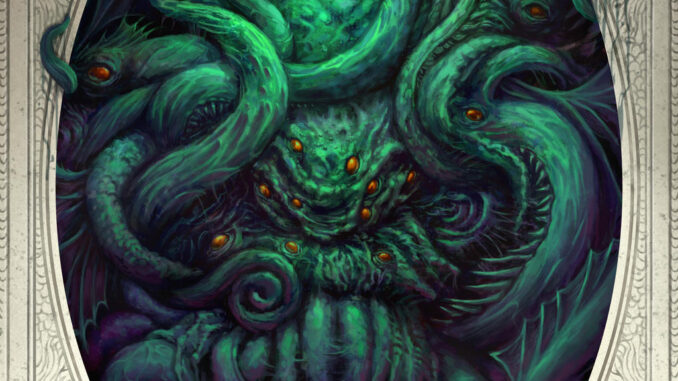
Sometimes, the investigators don’t go to the places where you’ve placed valuable clues you hope they will find. Sometimes they find the clues but quickly forget about them. Sometimes they find the clues and have long conversations about them, but later they get stymied and don’t know what to do next.
 This is when Keepers break out the Idea roll. The idea is the investigator with the highest Intelligence score makes an Intelligence roll. On a success, after some time and work goes by, the investigator discovers a missed or forgotten clue. On a failure, he discovers the clue but ends up in a situation where he’s in true danger.
This is when Keepers break out the Idea roll. The idea is the investigator with the highest Intelligence score makes an Intelligence roll. On a success, after some time and work goes by, the investigator discovers a missed or forgotten clue. On a failure, he discovers the clue but ends up in a situation where he’s in true danger.
It may seem counter-intuitive, but the difficulty levels for an Idea roll are set up so a clue that was never discovered only has a Regular level of difficulty. Clues that were discovered but ignored have a Hard level of difficulty, and the clues that were right under the investigators’ noses and which they tirelessly talked about… only to ignore or forget about… have an Extreme level of difficulty.
The purpose of this is not to reflect how easy it is for an investigator to remember a clue but how easy it should be for a player to recall or know about the clues. If they really should know about the clue, it becomes much more difficult for the player’s investigator to recall it.
This system rewards the players for taking notes and for exhausting their sources of research.
So, let’s say the players are doing an adventure where they’re looking into Indianapolis 500 drivers who have disappeared. They found traces of blood at the Marsh Refinery racing team’s garage. The investigators come to a dead end and don’t know where to go next. The Keeper calls for the player whose character has the highest Intelligence stat to make an Idea roll. He saw the blood but forgot about it, so the difficulty is Hard.
On a success, the investigators find themselves a couple days later returning to the Marsh Refinery racing team’s garage, in time to see a rival race car driver of the Marsh team being dragged into the garage. There’s a break in the case!
On a failure, about a week later (reflecting lost time for pursuing dead end leads), the investigators decide to break into Marsh Refinery racing team’s garage. They’re surprised when the race car comes to life and tries to eat them. They have a good idea what’s going on at the heart of the mystery, but they end up in serious danger.
Idea rolls can be adapted for use in Dungeons and Dragons and other roleplaying games to help at times when the players’ minds aren’t in the game, they’ve been lax at taking notes, or skipped part of the module where they would have found more clues.
Call for an Intelligence roll for the character with the highest Intelligence attribute. For D&D, for a clue they haven’t found they can roll a DC 8. For a clue they discovered but ignored a DC 13, and for a clue they studied in detail and dismissed or forgot about is a DC 17.
Be sure the players understand the difficulty goes up for clues where they should have caught the details earlier or remembered them. Watch note taking increase at your tables and the player characters become more thorough in their investigations… especially when failure results in a dangerous situation.
